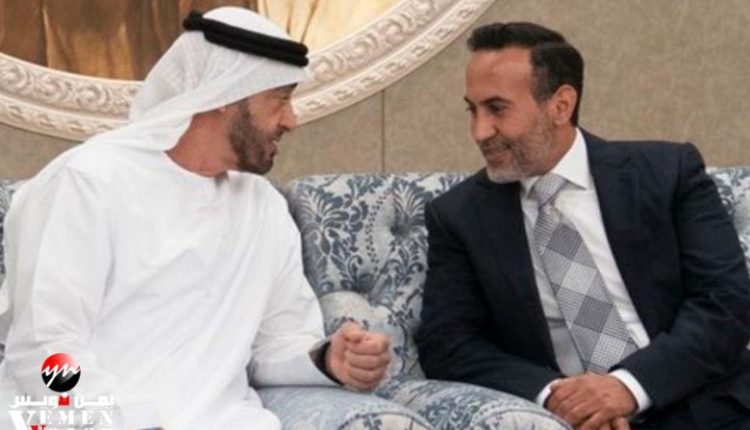Sana’a Topples the Traitor Card Ahmed Afash…
The End of the Chapter of Treason and the Reordering of the National Scene
After years of political manipulation, suspicious maneuvering, and systematic revival attempts, the Military Judiciary in the capital Sana’a drew the curtain on what many described as “the most dangerous card of the aggression,” when it issued its final verdict against the so-called Ahmed Ali Abdullah Saleh—son of the former president—convicting him of high treason, collusion with the enemy, and financial corruption, sentencing him to death, confiscating his assets, and recovering embezzled funds.
The ruling, issued in Case No. (27) of the year 1445 AH, was not merely a judicial decision, but a political turning point reflecting the end of a project that had been run from abroad for years—one whose ambitions no longer aligned with the new Yemeni equation forged in the heart of the confrontation against the U.S.-Saudi-Emirati aggression coalition.
The Traitor Who Was Being Groomed for a Comeback
For years, regional actors kept Ahmed Ali on standby as a political contingency, in case other bets failed. He was kept in the shadows—restricted from movement due to international sanctions imposed on him since 2014—yet remained part of the calculations of forces involved in the aggression, chief among them the UAE.
Despite his long absence, the removal of his name from the sanctions list in late July opened the floodgates for speculation about the enemy’s intentions to recycle symbols of the previous regime—an attempt to recreate an “acceptable face” for an external project under the banner of “peace.” But the judiciary cut that path off early with a definitive ruling that leaves no room for political revival or exploitation.
From Abu Dhabi to Riyadh… Suspicious Moves and Penetration Attempts
Over recent years, security apparatuses tracked multiple movements by the aforementioned Ahmed Ali, including direct meetings with Saudi and Emirati intelligence and military officials—some held in Abu Dhabi where he has resided since 2015, others in Riyadh—under the direct auspices of the coalition.
Political and security sources confirmed that these meetings were neither protocol nor personal; rather, they were organized attempts to resurrect Ahmed Ali’s role inside Yemen through coordination lines with partisan and security figures aiming to destabilize the national front. Financing, coordination, and bets on undermining the General People’s Congress from within—all formed part of a project to silence the national front and distract its focus from the central cause: confronting the aggression and supporting Palestine.
Why Didn’t the Congress Disavow the Traitor Ahmed Ali?
Despite the death sentence handed down to Ahmed Ali Abdullah Saleh on charges of high treason and collaboration with the enemy, the General People’s Congress in Sana’a did not issue a clear statement disavowing the convicted man, raising widespread questions in Yemeni public opinion. The Congress, which today stands in the trench confronting the aggression, finds itself awkwardly silent in the face of a figure condemned by both the judiciary and national reality for years.
The traitor Ahmed Ali did not hide his collaboration; he openly declared support for the Saudi-Emirati coalition, incited against national forces in Sana’a in his speeches, and adopted the narratives and media language of the aggression. He issued no statements condemning the siege or denouncing crimes against the Yemeni people. Instead, he appeared in public and clandestine scenes—most notably his meeting with the U.S. ambassador in Abu Dhabi—as part of calculated moves to rebrand him as a front loyal to occupation.
Some voices within the Congress clung to a person indicted for treason without any political or moral justification, becoming a burden on the party itself. If the Congress rejects the aggression, it must clarify its stance toward its own compromised instruments. Tolerating documented betrayal weakens public trust in the internal front and leaves room for speculation about the party’s real position in Yemen’s existential struggle against occupation and its allies.
Playing the Internal Card: Attempt to Explode the Congress from Within
Alongside external maneuvers, the enemy worked to cultivate an internal influence network tied to familial elements from Saleh’s regime, mobilizing them through direct orders from Ahmed Ali. The goal was clear: to reshape a loyalist current within the General People’s Congress that would adopt a “settlement” discourse, oppose the liberation project, and serve occupation agendas.
What these actors failed to account for was that the Congress is no longer a bloc steered solely by familial loyalty, and that the Yemeni landscape has fundamentally changed. “Legitimacy” is no longer inherited, nor can influence be built on nostalgia or the glory of a past that serves only the country’s enemies.
The End of a Project… Or Just the End of a Phase?
The death sentence against Ahmed Ali carries deep implications—not only in stripping political immunity from someone who inherited power without experience, but in ending a regional project that attempted to re-enter Yemen through “recycling names.”
This ruling closes the door on any regional bets placed on politically dead instruments and makes clear that today Yemen makes its decisions from the battlegrounds of confrontation—not from Abu Dhabi’s palaces nor Riyadh’s salons.
Treason Is Unforgivable… The Future Is Not Mortgaged
Between the moment of indictment and the moment of pronouncing the sentence, the message was clear: the homeland does not forgive those who sold it, and it does not expect someone who was used yesterday as a tool to become a leader today. Ahmed Ali was neither a statesman nor a leader—he was a facade used and then discarded.
The execution here should not be read as an act of vengeance, but as a definitive closure of a door that had remained open to chaos—a penetration project in which the family colluded with the enemy against the nation.
The ruling of the Military Court is a legal, political, and moral declaration that Yemen—facing the greatest powers in the world backing the aggression—will not allow traitors to infiltrate its ranks, regardless of their names, lineage, or past.

